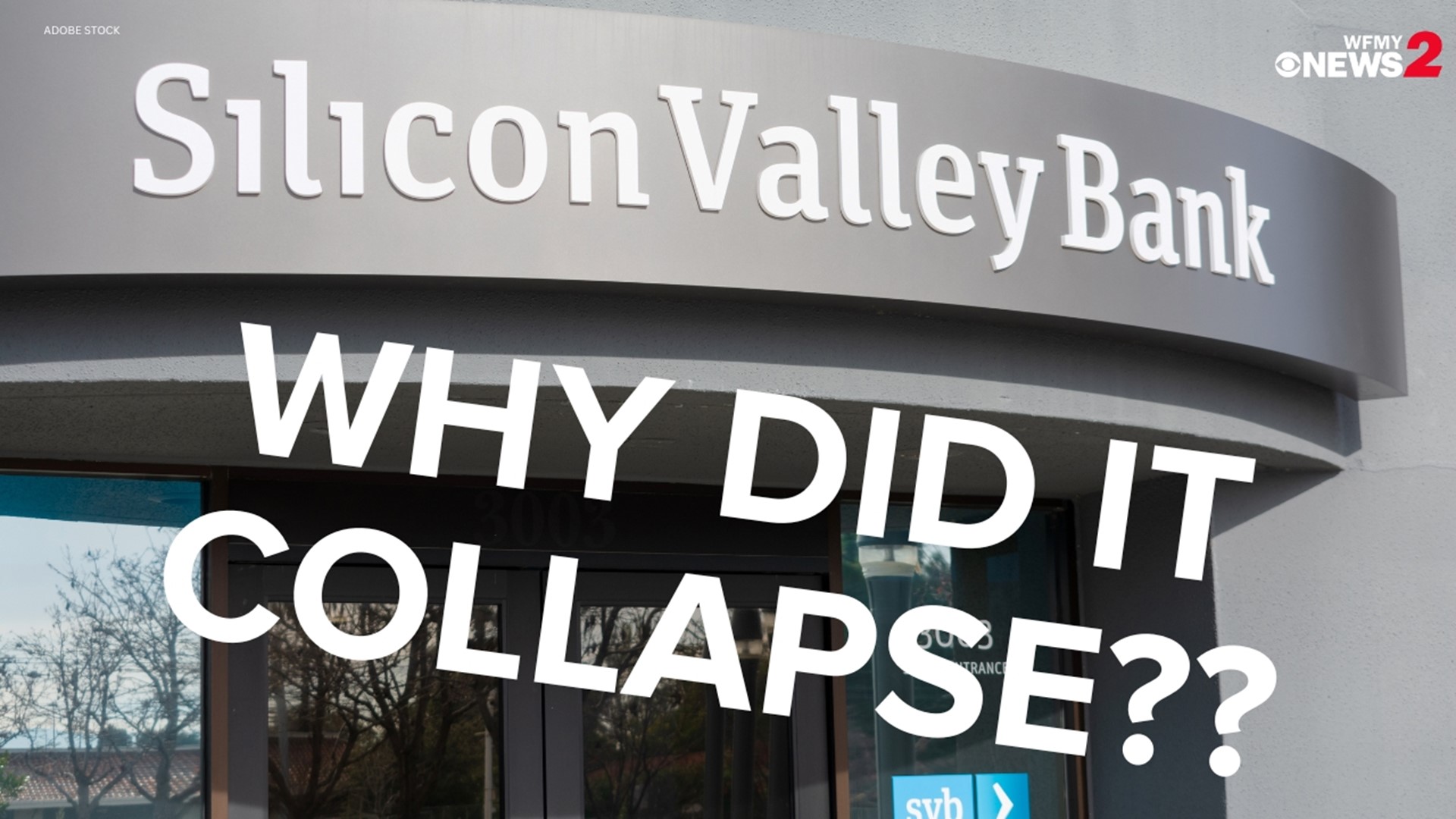GREENSBORO, N.C. — The Silicone Valley Bank collapse rattled the financial world and had many wondering what it could mean for their money.
Sunday the Federal Reserve announced emergency actions to help SVB customers access their accounts starting Monday and the FDIC would cover losses.
President Joe Biden was quick to announce taxpayer money would not cover this plan. Instead, it would be covered by bank fees paid into the deposit insurance fund.
The collapse happened because the tech and start-up-focused bank bet on higher-rate bonds that lost value as the Fed raised interest rates to slow inflation.
The President said because of the risk those investors took, they would not be protected by the federal government's actions.
This is the second largest bank collapse since Washington Mutual collapsed in 2008.
CBS News Business Analyst Jill Schlesinger said this collapse is much different than what we saw nearly 15 years ago.
"This is not 2008. We don't have every large financial institution looking at the housing market, taking on risk at the exact same time with little money on hand," Schlesinger said.
While you don't want to see banks fail every day, there are lessons to be learned from this collapse.
"Sometimes when this happens, it exposes where we are weak and that is why the government took those steps over the weekend to create confidence. Sometimes we learn from things falling apart and breaking" Scott Braddock, an expert with Scott Braddock Financial said.
Experts agree the moves made by the federal government should keep the banking industry stable, meaning there should be no ripple effect on other banks.
If you are looking for ways to further protect your money, consider having multiple accounts. Because the FDIC insures losses up to $250,000 you could have an individual account with that protection, along with say a joint account with that protection.
"Don't panic. We don't need to take our money out, we need to realize that from time to time businesses are going to fail, and banks are going to fail. What we need to do as consumers is have a long-term plan that is going to protect us," said Braddock.

